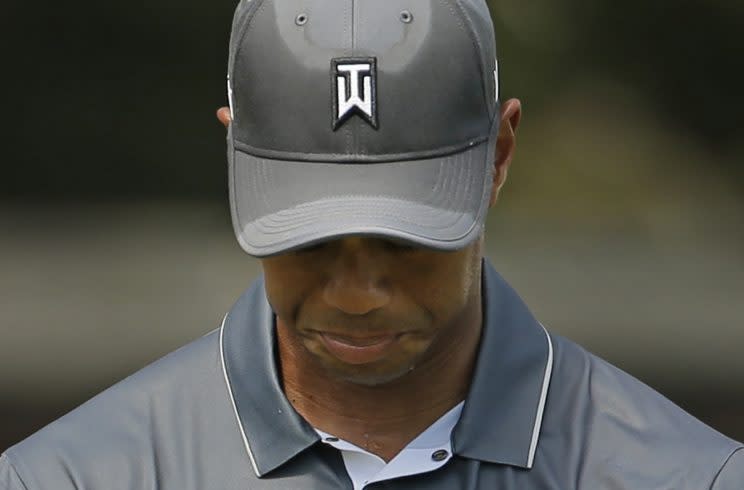Tiger Woods deserves your sympathy
Tiger Woods has gotten help. He confirmed as much on Monday via Twitter:
“I recently completed an out of state private program. I will continue to tackle this going forward with my doctors, family and friends. I am so very grateful for all of the support I have received.”
In typical Tiger fashion, he remained guarded, even now after everyone has seen the mug shot, seen the police video of him stumbling and mumbling his way through a sobriety test. But his secret is out, and what an amazing thing that is for him.
For all of his public life, which is most of his 41 years, Tiger has shrouded himself in secrecy, carefully crafting a public image of an unbreakable, determined-driven perfectionist. Of course much of it turned out to be a façade, Tiger being just as flawed as anyone, and had he not had that late-night run-in with a fire hydrant, maybe he could have kept it up for another few years.
But how exhausting must that have been, even for someone with the mental toughness of that man in Sunday red?
There was no sympathy for Tiger back then, only condemnation.
This time, though, is different.

For the first time maybe in his entire life, Tiger is a sympathetic figure, an underdog for whom to root. Hooking up with a Perkins’ waitress in a parking lot, with a wife and two kids at home, is a self-inflicted violation of human decency. Abusing medication you’re taking to deal with the relentless pain of a bad back is, well, human.
We don’t need to dive too deep into the pitfalls of opioid addiction here to make a point. Suffice is to say it’s fast become a national epidemic, one that touches the farthest reaches of society, from the impoverished coal-mining towns of West Virginia to the mansion-lined beaches of Jupiter, Florida.
It’s cliché to say these drugs don’t discriminate, but it’s also true. Opioids are addictive as all get out, which is why after three arthroscopic surgeries I chose pain over pills, not even wanting to risk it despite doctors more than willing to write me prescriptions.
Chronic pain is a beast, something that can turn even the greatest perceived superhero into a mere mortal lying on the ground, begging your little girl to call for help, which is something Tiger did a few years ago when he collapsed in pain on his golf course and couldn’t get up.
Through this entire back injury ordeal he’s dealt with, Tiger has had the finest doctors giving the best advice, he’s benefited from precision rehab and he’s taken time off – lots and lots of time off – and still the pain wouldn’t go away.
He’d gone from a world-class athlete threatening to break Jack Nicklaus’ record of 18 majors to some guy just hoping to wake up in the morning able to get out of bed pain-free. Maybe the only way to do that was to take a Vicodin, and then another and then another and then another until one night he’s on the side of the road, failing a sobriety test.
There’s no excuse for it. There’s no excuse for a lot of bad things we do. It’s just to show that it can happen … even if you’re Tiger Woods, with everything in the world to lose.
So now here he is, exposed to the world for the second time by yet another late-night run-in.
In the coming days (or weeks or months, even), there will likely be a news conference, just like there was back in 2010 when he apologized for cheating on his wife in what was nothing but a feckless effort at crisis management. It will be another opportunity for him to talk about his flaws, his demons, his fears. A chance for him to be real.
And if he does, there will be no judgment, not here anyway, only a nod of approval and a hope that he gets it back together.


